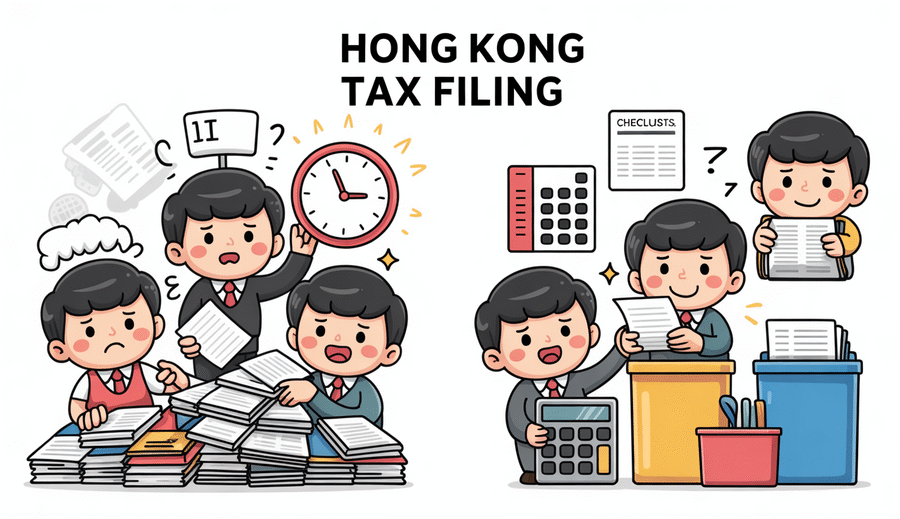Misclassifying Deductible vs Non-Deductible Expenses in Hong Kong
Accurately classifying business expenses is a critical aspect of Hong Kong corporate tax filing. A common pitfall for companies involves incorrectly distinguishing between costs that the Inland Revenue Department (IRD) allows as deductions against assessable profits and those that are not permissible. This misclassification directly affects a company’s taxable profit, potentially leading to underpayment of tax and associated penalties, or conversely, overpayment if legitimate deductions are overlooked.
Confusion frequently arises concerning expenditures that may appear business-related but are deemed capital in nature or pertain to domestic and private use. A clear understanding of these distinctions is essential for compliance. To illustrate typical classifications for Hong Kong profits tax purposes, the following examples highlight the general treatment of various expenses:
| Generally Deductible | Generally Non-Deductible |
|---|---|
| Rent for business premises | Capital expenditure (e.g., purchase of property) |
| Salaries and wages | Drawings by partners/proprietors |
| Utility expenses (for business use) | Domestic or private expenses |
| Business travel costs | Depreciation as per financial accounts (tax depreciation rules apply) |
| Repairs and maintenance (not improvements) | Fines and penalties for breaking the law |
| Interest on money borrowed for business | Expenses not wholly and exclusively for producing profits |
To mitigate the risk of misclassification, businesses can implement robust internal controls, including leveraging automated accounting systems designed to flag potentially questionable expense categories based on predefined rules aligned with tax regulations. While technology offers valuable support, it is not a substitute for expert knowledge.
Ultimately, accurate expense categorization relies heavily on tax preparers and businesses staying current with the IRD’s official guidance. Tax laws and their interpretations can evolve, making reliance on outdated information a significant source of error. Regularly consulting the IRD’s updated lists of allowable expenses and relevant practice notes is paramount for ensuring correct tax computation and compliance.

